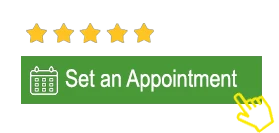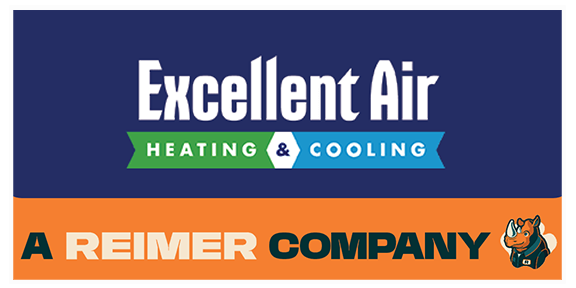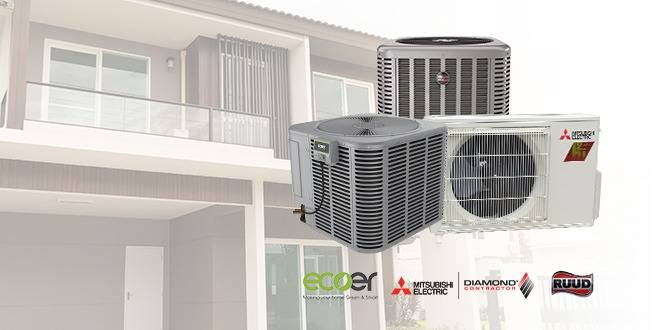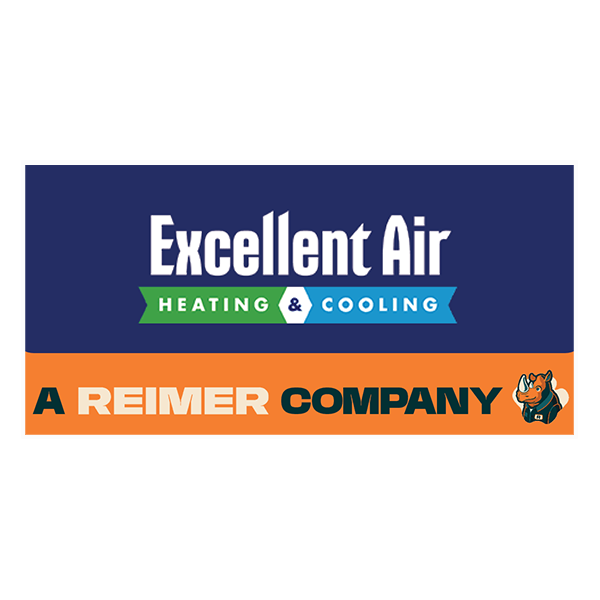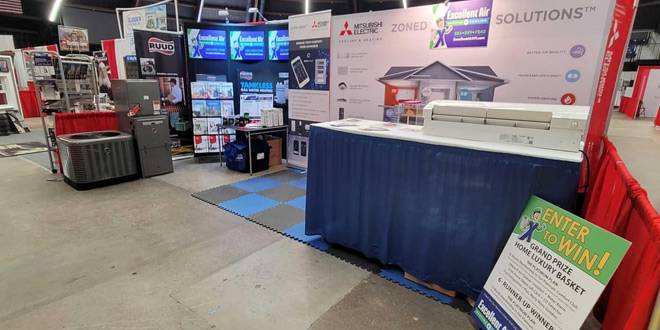
In today’s fast-paced world, ensuring optimal home comfort is more important than ever. From scorching summer days to chilly winter nights, having a reliable central heating and cooling system is essential to maintaining a comfortable indoor environment. In this comprehensive guide, we will delve into everything you need to know about purchasing the perfect system for your home.
Understanding Central HVAC Systems
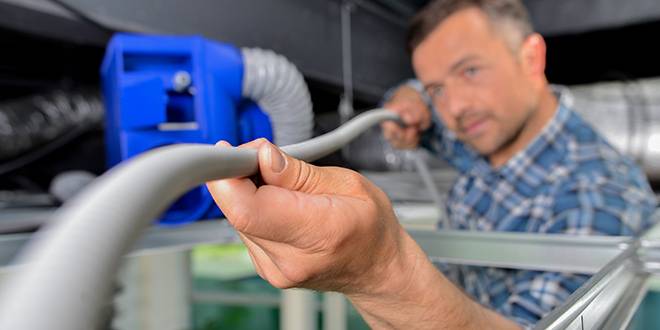
Central heating and cooling systems are the backbone of modern home comfort, providing efficient and reliable temperature control throughout the entire house. These systems work by distributing heated or cooled air through a network of ducts or pipes, ensuring consistent comfort in every room.
Types of Central Heating and Cooling Systems:
- Split Systems: Split systems consist of two main components: an outdoor unit (containing the condenser and compressor) and an indoor unit (containing the evaporator coil and air handler or furnace). These systems are versatile and suitable for various home sizes and layouts.
- Ducted Systems: Ducted systems utilize a network of ducts to distribute conditioned air throughout the home. They are often preferred for their ability to provide uniform temperature control and energy efficiency. Ducted systems can be further categorized into zoned and non-zoned systems, offering flexibility in controlling different areas of the home independently.
- Heat Pumps: Heat pumps are an energy-efficient alternative to traditional heating and cooling systems. They work by transferring heat between the indoors and outdoors, providing both heating and cooling capabilities. Heat pumps are particularly well-suited for moderate climates and can significantly reduce energy consumption compared to conventional systems.
Key Components of Central Heating and Cooling Systems:
- Thermostat: The thermostat serves as the control center for the system, allowing users to set and adjust the desired temperature.
- Condenser: The condenser is responsible for dissipating heat from the refrigerant, allowing it to return to a liquid state.
- Compressor: The compressor increases the pressure and temperature of the refrigerant, facilitating the heat transfer process.
- Evaporator Coil: The evaporator coil absorbs heat from the indoor air, causing the refrigerant to evaporate and cool the air.
- Air Handler/Furnace: The air handler or furnace circulates conditioned air throughout the home via ductwork, ensuring even distribution.
Advantages of Central Heating and Cooling Systems:
- Consistent Comfort: Central systems provide consistent temperature control throughout the home, eliminating hot and cold spots.
- Energy Efficiency: Many central systems are designed to be energy-efficient, helping homeowners save on utility bills.
- Improved Indoor Air Quality: Central systems often include air filtration features, removing allergens and pollutants from the air for cleaner, healthier indoor air.
By understanding the different types and components of a central air conditioner, homeowners can make informed decisions when selecting the system that best suits their needs and preferences.
Factors to Consider Before Buying
Investing in a central heating and air conditioning system is a significant decision that requires careful consideration of various factors. Before making a purchase, it’s essential to evaluate the following key aspects to ensure you select the right system for your home:
1. Size and Layout of Your Home:
Consider the square footage and layout of your home when choosing a heating and cooling system. Larger homes may require more powerful systems to adequately heat or cool the space, while smaller homes may be adequately served by smaller heat pump systems. Additionally, factors such as the number of floors and the presence of open-concept layouts can influence the system’s efficiency and performance.
2. Energy Efficiency Ratings:
Energy efficiency is a crucial consideration when selecting a central heating and cooling system. Look for systems with high SEER (Seasonal Energy Efficiency Ratio) and HSPF (Heating Seasonal Performance Factor) ratings, as these indicate greater energy efficiency and lower operating costs. Energy-efficient systems not only save money on utility bills but also reduce environmental impact by consuming less energy.
3. Climate Considerations:
Your local climate plays a significant role in determining the type of heating and cooling system that is best suited for your home. For example, homes in regions with extreme temperatures may require more robust heating and cooling solutions, such as heat pumps or hybrid systems. Conversely, homes in mild climates may benefit from simpler, more cost-effective systems.
4. Budget Constraints:
Establish a budget for your central heating and cooling system purchase and consider both upfront costs and long-term expenses. While higher-priced systems may offer advanced features and greater energy efficiency, it’s essential to balance cost with value and performance. Additionally, explore financing options and rebates that can help offset the initial investment and make high-quality systems more affordable.
5. Future Maintenance and Service Needs:
Factor in the ongoing maintenance and service requirements of the heating and cooling system when deciding. Consider the availability of professional technicians in your area, as well as the cost and frequency of routine maintenance tasks such as filter replacements and system inspections. Choosing a system with a reliable warranty and strong customer support can provide peace of mind and minimize future maintenance costs.
Choosing the Right System for Your Needs
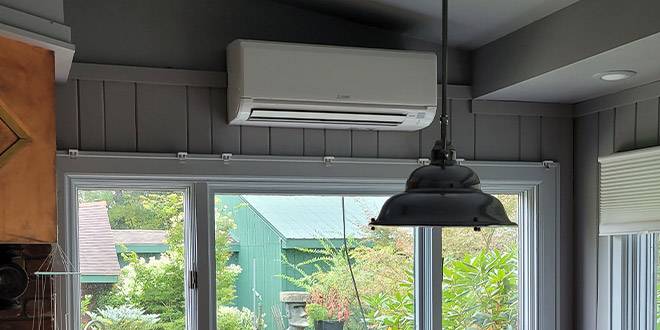
With a plethora of options available in the market, selecting the right central heating and cooling system can feel like a daunting task. However, by considering your specific needs, preferences, and budget, you can narrow down your choices and make an informed decision. Here’s a breakdown of the different types of central heating and cooling systems and their respective pros and cons:
1. Split Systems:
Pros:
- Versatile and suitable for a wide range of home sizes and layouts.
- It can be more cost-effective than other system types.
- Easy to install and maintain.
Cons:
- It may require more space for outdoor unit installation.
- Outdoor units can be susceptible to weather-related damage.
- It may not offer the same level of energy efficiency as other system types.
2. Ducted Systems:
Pros:
- Provides uniform temperature control and energy efficiency.
- Ideal for larger homes with multiple rooms or floors.
- It can be zoned to control temperature independently in different areas.
Cons:
- Installation can be more complex and costly, especially for existing homes without ductwork.
- Requires regular duct cleaning and maintenance to prevent air quality issues.
- Zoned systems may require additional equipment and controls, increasing upfront costs.
3. Heat Pumps:
Pros:
- Provides both heating and cooling capabilities in one system.
- Energy-efficient operations can result in significant cost savings.
- Ideal for moderate climates with mild winters and summers.
Cons:
- It may be less effective in extreme climates with very low or very high temperatures.
- Initial installation costs may be higher than traditional systems.
- Performance can be affected by outdoor temperature fluctuations.
When choosing the right system for your needs, you must consider factors such as your home’s size and layout, climate, energy efficiency requirements, and budget constraints. Consulting with a professional HVAC technician can also provide valuable insights and recommendations tailored to your specific circumstances.
Installation and Maintenance Tips
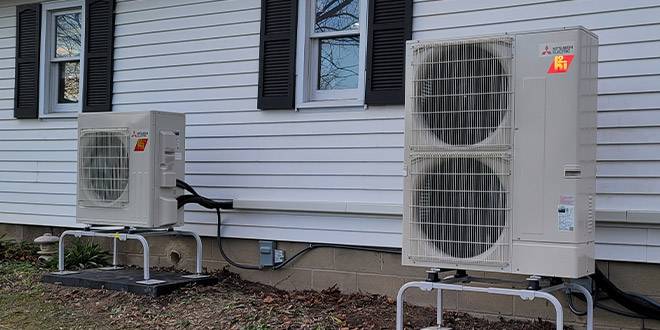
The proper installation and regular maintenance of your central heating and cooling system are critical to ensuring optimal performance, efficiency, and longevity. Here are essential tips to keep in mind:
Professional Installation is Key:
Always opt for professional installation by certified technicians. This ensures that your system is installed correctly according to manufacturer specifications and local building codes. At Excellent Air Heating & Cooling, our installers are not only skilled but bring over 35 years of knowledge to every project, ensuring your system operates at its best from day one.
Routine Maintenance Matters:
Regular maintenance is vital to keeping your system running efficiently and extending its lifespan. This includes changing air filters regularly, scheduling annual inspections, and promptly addressing any heating repairs. Our Comfort Club Membership offers a comprehensive maintenance plan that includes heating tune-ups, air conditioner check-ups, and service discounts, making it easy to keep your system in top condition.
Understand Your System:
Familiarize yourself with the basic operation of your heating and cooling system. Knowing how to set your thermostat effectively and when to switch between heating and cooling modes can improve your system’s efficiency and your home’s comfort.
Be Proactive with Repairs:
Don’t wait until your system breaks down to call for service. If you notice any signs of trouble, such as strange noises, uneven heating or cooling, or increased energy bills, contact us immediately. Our team is available 24/7 for emergency service, ensuring that you’re never left in discomfort.
Consider Upgrades for Efficiency:
Over time, upgrading components such as thermostats to programmable or smart models can significantly enhance your system’s efficiency and control. We can advise on the best upgrades for your specific needs, helping you to achieve even greater comfort and energy savings.
Seal and Insulate:
Ensure your home is properly sealed and insulated. This can dramatically affect the efficiency of your heating and cooling system. Sealing leaks around doors, windows, and ductwork, along with proper insulation, can help maintain consistent temperatures and reduce the workload on your system.
At Excellent Air Heating & Cooling, we understand the importance of a properly installed and maintained central heating and cooling system. Our commitment to quality service, combined with our expertise in the latest technology and green practices, ensures that your system delivers superior comfort and efficiency year-round.
Understanding Financing Options

Investing in a new central heating and cooling system is a significant financial commitment, but it doesn’t have to be a burden. Understanding your financing options can make the process more manageable and affordable. Here are the financing solutions we offer:
1. Synchrony Financing:
Synchrony offers installment loans with fixed rates and terms, making it easy to budget for your new HVAC system. With quick and easy application and approval processes, you can get the financing you need immediately. Synchrony also provides flexible payment options tailored to your financial situation.
2. Reliant Credit Union:
Reliant Credit Union offers a range of financing options for individuals and businesses, including HVAC system loans. With competitive interest rates and fast approval times, Reliant makes it easy to finance your new heating and cooling system. Their simple application process and convenient payment options ensure a hassle-free experience from start to finish.
3. Rebates and Incentives:
Explore available rebates and incentives offered by government agencies, utility companies, and manufacturers. These incentives can offset the cost of your new HVAC system and make energy-efficient upgrades more affordable. Our team can provide information on available rebates and assist with the application process to maximize your savings.
4. Flexible Payment Plans:
Many HVAC providers, including Excellent Air Heating & Cooling, offer flexible payment plans to accommodate different budgets. These plans may include low monthly payments, deferred interest, or zero-down financing options. We aim to make quality HVAC services accessible to everyone, regardless of financial constraints.
By exploring these financing options and working with our team at Excellent Air Heating & Cooling, you can find the right solution to fit your budget and ensure your home comfort needs are met without breaking the bank. Contact us today to learn more about our financing options and get started on your HVAC upgrade journey.
Secure Your Comfort with Us
Ready to elevate your home’s climate control? Choose Excellent Air Heating & Cooling, where superior service meets unparalleled expertise. 🏡💼 Embrace a future of comfort and efficiency. Connect with us today, and let’s embark on a journey to optimize your living space together. Your ideal home environment awaits—let’s make it a reality. 🌟📞
